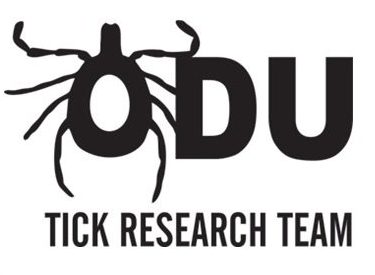Our lab offers pathogen testing services to people who want to have ticks tested. Please follow these instructions:
Put your tick in a small ziplock bag and freeze it for at least two hours to ensure it is dead. Put that bag in another bag and then put into some type of padded or more solid envelope. We recommend you send the tick via UPS or FEDEX, although you can send it via the US Postal Service. Please include information on where you think you picked up the tick and a contact e-mail so we can send you the results of our testing. Please make the check out to “Old Dominion University” and write “Tick Research” on the memo line.
Our lab routinely tests ticks that are collected in the field or donated to us. If you are requesting testing with results for a specific tick, we ask for a donation ($50 per tick) to cover our expenses in the extraction and testing of the ticks.
Information gained from testing your ticks may be incorporated into our research data on distribution of tick-borne pathogens across the Commonwealth of Virginia. By sending us your tick you are agreeing to have the data on the tick and any associated pathogens included in our tick-research project. We will not use any personally identifiable data.
We will test the tick for Borrelia burgdorferi, B. miyamotoi, Anaplasma phagocytophilum, Ehrlichia chaffeensis and E. ewingii. We will also test for the presence of Rickettsia spp. (additional tests to determine exact Rickettsia sp. as appropriate) and Babesia microti. Different pathogens are carried by different ticks, so depending on the tick you send us the tests for the most likely pathogens will be carried out first. Other tests may take a little longer. Our aim with testing is to get you the results of the most likely pathogens carried by your tick within a week of receiving the samples.
We use PCR based assays for pathogen detection, which are sensitive and specific. However no test is 100%; extraction issues or qPCR errors can result in less than 100% accuracy.
Our results are not diagnostic – they can only tell you what may be carried by the tick. A negative result does not mean the pathogen is not there, it may be below the level of detection. A positive test does not mean you were exposed, just that there was the potential for exposure. Be sure to follow up with your health care provider for any signs or symptoms you might experience including fever, rash, etc.
Please let us know if you are sending us a tick or if you have any questions: whynes@odu.edu or hgaff@odu.edu
